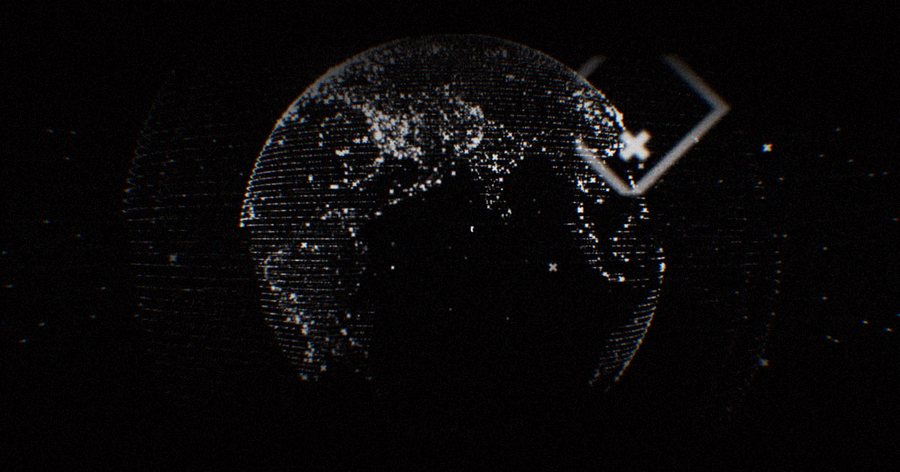It’s time that we, as a collective, talk about monopolies in the world of the Internet. As a society, we have grown as dependent on the Internet as we have to utilities such as water, gas or electricity. It’s no wonder that for some, access to the Internet has become a basic human right. It's as fundamental as the freedom of expression and opinion. So what if the Internet suddenly becomes victim to “The Cycle,” a term coined by Harvard law professor Tim Wu, which describes what has happened to many different information technologies in the past including telegram, telephone, cinema, radio, and television? The fear is, the Internet is likely to be next! What is “The Cycle?” Is the Internet at risk? What are the dangers? What can we do to prevent them? These are questions that will be touched upon in this post and discussed at more length during the upcoming WCIT 2019.
What is The Cycle?
So what is The Cycle? According to Tim Wu, The Cycle is a process in “which information industries rise, consolidate, monopolize, capture governments, force out competitors, and, eventually, fragment into something less grandiose, less perfect, but more vibrant, open, and innovative.” History has shown that this Cycle is one that repeats itself. An inventor will discover the technology, then early-adopting pioneers and enthusiasts will start making use of it. The technology becomes commercialized, perfected, popularized and scaled. Then the corporations gain enough power that they get the government involved, allowing them to become the ruling monopolies. This is followed by a period of general inactivity until a new technology is discovered, and The Cycle starts over again. The question at hand is, will it be different this time?
We are currently fighting to maintain the Open Internet, a concept whereby “the information across the World Wide Web is equally free and available, without variables that depend on the financial motives of Internet Service Providers.” The whole process of the cycle involves taking an open system and turning it into something closed. Right now, the internet is considered to be in its 4th step in The Cycle. The Internet has already been commercialized. There have been monopolies and powerful stakeholders gathering around the Internet for decades, which have refined and scaled it (think YouTube, WordPress, Flickr, Wikipedia, Google, Netflix, etc.). These pose a serious threat to the freedom and openness of the Internet as we know it. Key players include governments, telecom monopolies, Internet giants, startups, NGOs, hackers and more. This war may very well define today’s society, as we determine who controls human communication, and how.
Why is this dangerous?
The biggest fear is that we will lose sight of capitalism and replace it with corporatism instead. While capitalism is a lot more chaotic, it is also more healthy for society than allowing a central body, like big corporations and/or governments, to make choices for us. By giving in to corporatism we would be stifling the opportunities not only for small business to grow and thrive but also for the process of innovation to take place. This, of course, leads to the issue of widening the gap of the rich getting richer while the poor get poorer. Those who currently have more power will become even more powerful, pushing out any competitors and keeping the playing field in their favor.
Once these monopolies collect this power, they will either buy out their competitors or prevent them from growing in the first place. There have been examples of attempts already. Like when telecommunication company Verizon blocked Google Wallet from their phones in favor of their own application, ISIS. Other means of placing restrictions on the internet come from Internet Service Providers (ISPs) who can potentially slow down internet speed for certain websites and applications. A hypothetical example would be if Comcast, the largest cable provider in the US, wanted to push consumers to watch NBC (owned by them) over Netflix. In this scenario, they might decide to slow down their major competitors’ content. Research has shown that people are so impatient that slowing down a website by even 250 milliseconds is enough for them to leave it.
Who are the Monopolies?
Let’s quickly get to know those who are currently in control. Half of the ten largest corporations in the world are internet companies, and one of them is an ISP. Internet companies are taking the lead because they control information, communication, and even politics! In the war for the open Internet, the main stakeholders of central focus are ISPs. For the purposes of this article, we are going to take a look at examples in the US. For broadband, there’s Cox (which recently acquired Time Warner), and Comcast (which controls 56% of US’ broadband). For wireless, there’s AT&T and Verizon (which control two-thirds of the wireless market). If given free rein, ISPs would hinder free market competition by any means necessary. This is where Net Neutrality comes in as a defense mechanism to help keep ISPs in check by preventing them from:
× Blocking content from websites
× Slowing down content from websites
× Accepting money from websites to speed up their content
Meanwhile, half of all of the internet traffic goes to only 30 websites. Considering how over-saturated and chaotic the Internet is, that's significant! This means that, while launching a website has become more affordable, it costs more to actually become visible to a wide audience. Here, Facebook and Google advertisements dominate the sphere by making up 85% of all online advertising. And while this is concerning now, it has the potential to become a big problem in the future. The benevolent monopolists who currently run these organizations may pass their power on to less benevolent successors in time. Again, Net Neutrality rules intend to help level the playing field so that rich and powerful corporations will not be able to buy priority access to the internet. This will give the small startups, businesses, blogs and content creators a chance to compete.
What is the future without Net Neutrality?
Let’s paint a clearer picture of what is in store for us if we continue down a path without Net Neutrality. In a future without Net Neutrality, websites may have to pay ISPs to become accessible for their customers. Otherwise, they may as well be invisible. Their other choice would be to allow a walled garden (such as Facebook or Apple) pay the ISPs on their behalf. This comes at a price, however. In exchange, they would have to lose some control. This includes allowing the walled gardens to place (competitor) ads into their website, use their data and sell it to their competitors, and even redirect their audience to competitors who are willing to pay. Let’s face it, it’s not a pretty picture.
This is why it is so important to discuss the options and what we can do today to protect the open internet of the future. Otherwise, we risk losing this very important war. The aim is to make sure that the Internet, the most powerful tool for communication, information, and creativity in the history of mankind, continues to benefit the public and not just a select few controlling corporations and governments. Society can save the open Internet, and the first step is to raise awareness and discuss these issues in forums, like those included within the frameworks of WCIT 2019. Together, it is possible to break The Cycle and foster free capitalism online.




